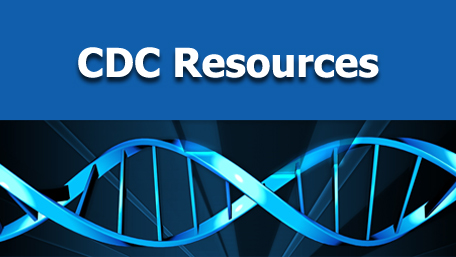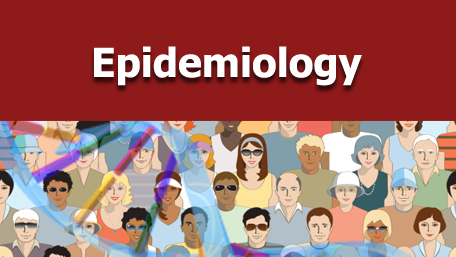Appl Clin Genet. 2016 Jul 11;9:93-100. doi: 10.2147/TACG.S103975. eCollection 2016.
Utilization of genetic testing among children with developmental disabilities in the United States.
Abstract
PURPOSE:
METHODS:
RESULTS:
CONCLUSION:
KEYWORDS:
autism spectrum disorders; developmental delay; genetic screening; intellectual disability
- PMID:
- 27468247
- PMCID:
- PMC4946856
- DOI:
- 10.2147/TACG.S103975
Public Health Genomics Knowledge Base (v1.2)


Last Posted: Nov-04-2016 2PM

Last Updated: Nov 04, 2016
- Genomic diagnosis for children with intellectual disability and/or developmental delay
KM Bowling et al, BioXRV, November 2016 - Analytical and Clinical Validity Study of FirstStepDx PLUS: A Chromosomal Microarray Optimized for Patients with Neurodevelopmental Conditions
CH Hensel et al, BioXRIV, October 26, 2016 - "This lifetime commitment": Public conceptions of disability and noninvasive prenatal genetic screening.
Steinbach Rosemary J et al. American journal of medical genetics. Part A 2016 Feb 170A(2) 363-74 - Utilization of genetic testing among children with developmental disabilities in the United States.
Kiely Bridget et al. The application of clinical genetics 2016 993-100 - Exome Sequencing and the Management of Neurometabolic Disorders
Maja Tarailo-Graovac et al, NEJM May 25, 2016 - Capturing the clinical utility of genomic testing: medical recommendations following pediatric microarray.
Hayeems Robin Z et al. European journal of human genetics : EJHG 2015 Sep 23(9) 1135-41 - Prevalence, phenotype and architecture of developmental disorders caused by de novo mutation
JF McRae et al, Biorxiv, April 2016 - Systems genetics identifies a convergent gene network for cognition and neurodevelopmental disease.
Johnson Michael R, et al. Nature neuroscience 2015 12 - Newborn Screening for Metabolic, Endocrine, and Genetic Conditions (Ohio)
Disease: NA; Type: Program; State: Ohio - A diagnostic approach for cerebral palsy in the genomic era.
Lee Ryan W et al. Neuromolecular medicine 2014 Dec (4) 821-44 - Defining the Effect of the 16p11.2 Duplication on Cognition, Behavior, and Medical Comorbidities.
D'Angelo Debra, et al. JAMA psychiatry 2015 12 1-11 - Alabama Newborn Screening Program
Disease: NA; Type: Program; State: Alabama - Causes of developmental disabilities include genetics
- Developmental disabilities are a group of conditions due to an impairment in physical, learning, language, or behavior areas.
About one in six children in the U.S. have one or more developmental disabilities or other developmental delays - Genetic studies in intellectual disability and related disorders.
Vissers Lisenka E L M et al. Nature reviews. Genetics 2015 Oct

- CDC Information (2)
- CDC-Authored Pub (0)

- Human (3)
- Pathogen (0)

- Human (106)
- Pathogen (0)

- Human (13)
- Pathogen (0)

- Guidelines (0)
- Tier Table (0)
- Synthesis (4)

- Huamn (2)
- Pathogen (0)
 Developmental Disabilities
Developmental Disabilities































No hay comentarios:
Publicar un comentario